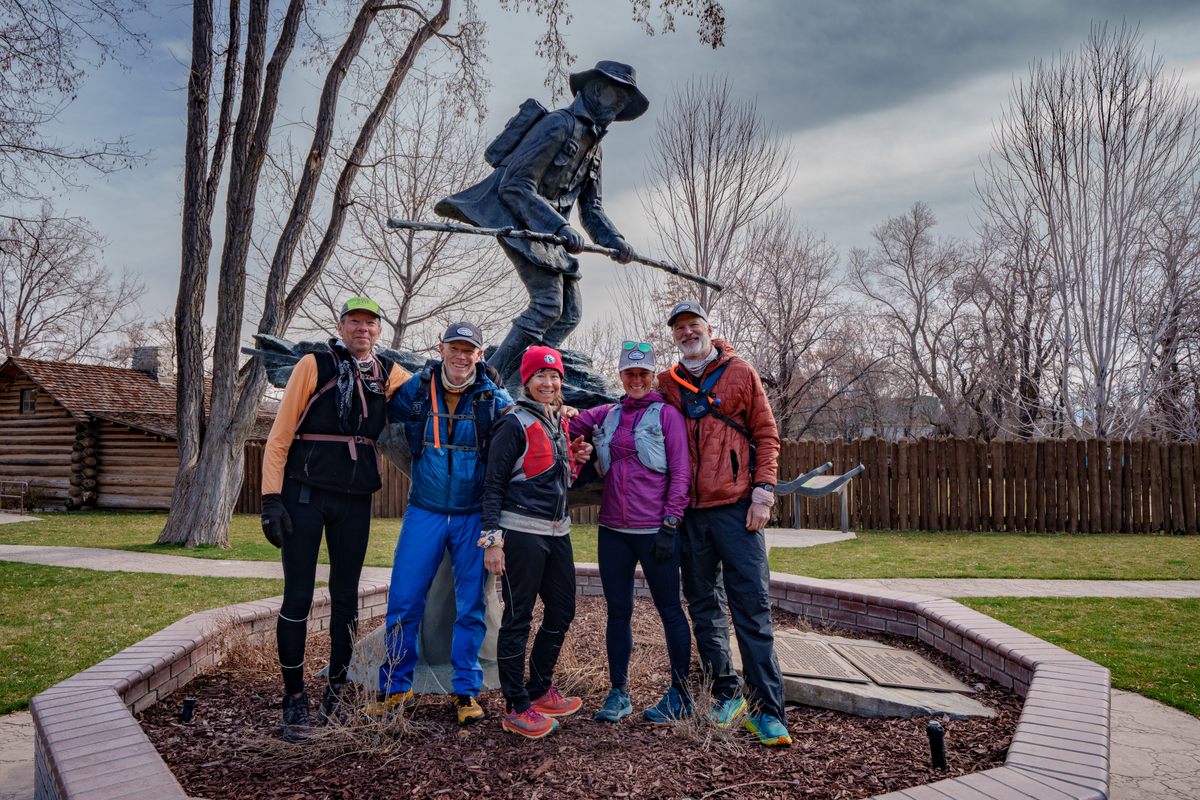After her husband had a brain injury she adopted him

From Now I Know: "In 2006, 21-year-old Kris married Brandon Smith, the boy she had been dating throughout most of high school and beyond. But two years into their marriage, tragedy struck. Brandon was in a car accident and barely survived. It took two months before Brandon regained consciousness, but he wasn’t the same person. He had post-traumatic amnesia and now needed constant care with no hopes of recovery. For the next few years, Kris took care of Brandon, putting her life on hold as a result. He needed around-the-clock care, so she moved him into a nursing home nearby, and then she filed for divorce. But Kris didn’t abandon Brandon. She adopted him."
High-school science students discovered that Epi-Pens don't work in space

From U of Ottawa: "Students from St. Brother André Elementary School’s Program for Gifted Learners (PGL) were interested in the effects of cosmic radiation on the molecular structure of epinephrine, a medication found in EpiPens used in emergencies to treat severe allergic reactions. The PGL students had their experiment accepted by the Cubes in Space program, meaning that it was sent into space with NASA. The John Holmes Mass Spectrometry Core Facility in the uOttawa’s Faculty of Science analyzed the returned samples to find the epinephrine sent into space returned only 87% pure, with the remaining 13% transformed into extremely poisonous benzoic acid derivatives."
Solution to 70,000-year-old scientific mystery sparks controversy

From The Debrief: "New research into a 70,000-year-old mystery behind the first migration of modern humans out of Africa has proposed that humanity actually existed as a single homogenous population in the Persia Plateau for millennia before its ultimate expansion across the globe. Decades of previous research indicate that Homo sapiens first left Africa around 70,000 years ago. Still, most of the evidence for our species’ genetic diversification via its expansion into Europe, Asia, and Oceania only dates back about 45,000 years. Now, a team of researchers says they have solved this mystery by showing that humanity’s ancient migration essentially paused for over 20,000 years."
Editor's note: If you like this newsletter, please share it with someone else. And if you really like it, perhaps you could subscribe, or contribute something via my Patreon. Thanks for being a reader!
British man falls to his death after dozing off on top of a pyramid

From the LA Times: "A British tourist fell to his death after he illegally climbed the Great Pyramid, then dozed off, authorities said. His body was found beside the monument, the largest of the three Giza pyramids. An officer at Giza police station said Flanagan apparently was alone on his climb and that foul play was not suspected. He did not explain how authorities knew Flanagan, 21, fell asleep before toppling to his death. Pyramid climbing has been done for centuries. Records show more than 1,600 climbers have died in the last 200 years. The last reported death was in 1980 when Susanne Urban, a 21-year-old American, was killed in a fall. Pyramid climbing was banned in 1951."
How the invention of the postcard revolutionized pornography

From JSTOR Daily: "Postcards were legitimized as a form of international mail in 1886 by the Congress of the Universal Postal Union. Between 1894 and 1919, roughly 140 billion postcards were mailed worldwide. It’s little wonder that pornography, which quickly finds its way to new forms of mass communication, became associated with postcards. Particularly French postcards. “French postcard” became a euphemism for the postcard-sized, card stock paper pornographic image. They were not necessarily mailed—censorship ruled that out if the postcards showed pubic hair, genitals, or nipples—unless in envelopes, but they could be purchased from legitimate venues or, more shadily, on the street."
Retracing the 100-mile postal route of the legendary Snowshoe Thompson

From Atlas Obscura: "Snowshoe Thompson was a mailman who delivered mail on skis (which he called snowshoes) through some of the most punishing and snowbound mountain passes in the nation—the same region that trapped the Donner Party in the winter of 1846-47. Starting from a nearby but no longer extant post office, Thompson accomplished this journey between Placerville and Genoa, Nevada again and again, carrying up to 100 pounds of mail on his back—not just envelopes but packages, too. He brought no blanket: He would arrange pine boughs on the snow to nap on. Just a few bits of jerky or biscuit would tide him over; anything more would weigh him down. It took him three days to travel eastbound and two days to return through the wilderness."
This person's luggage decided to head off on a journey of its own
«Where your luggage goes when it’s lost»
— Massimo (@Rainmaker1973) April 29, 2024
This really happened in Dallas on a particularly windy day.
[📹 adventuresofcnelly]pic.twitter.com/0MW2wDE1mM
Acknowledgements: I find a lot of these links myself, but I also get some from other newsletters that I rely on as "serendipity engines," such as The Morning News from Rosecrans Baldwin and Andrew Womack, Jodi Ettenberg's Curious About Everything, Dan Lewis's Now I Know, Robert Cottrell and Caroline Crampton's The Browser, Clive Thompson's Linkfest, Noah Brier and Colin Nagy's Why Is This Interesting, Maria Popova's The Marginalian, Sheehan Quirke AKA The Cultural Tutor, the Smithsonian magazine, and JSTOR Daily. If you come across something interesting that you think should be included here, please feel free to email me at mathew @ mathewingram dot com



